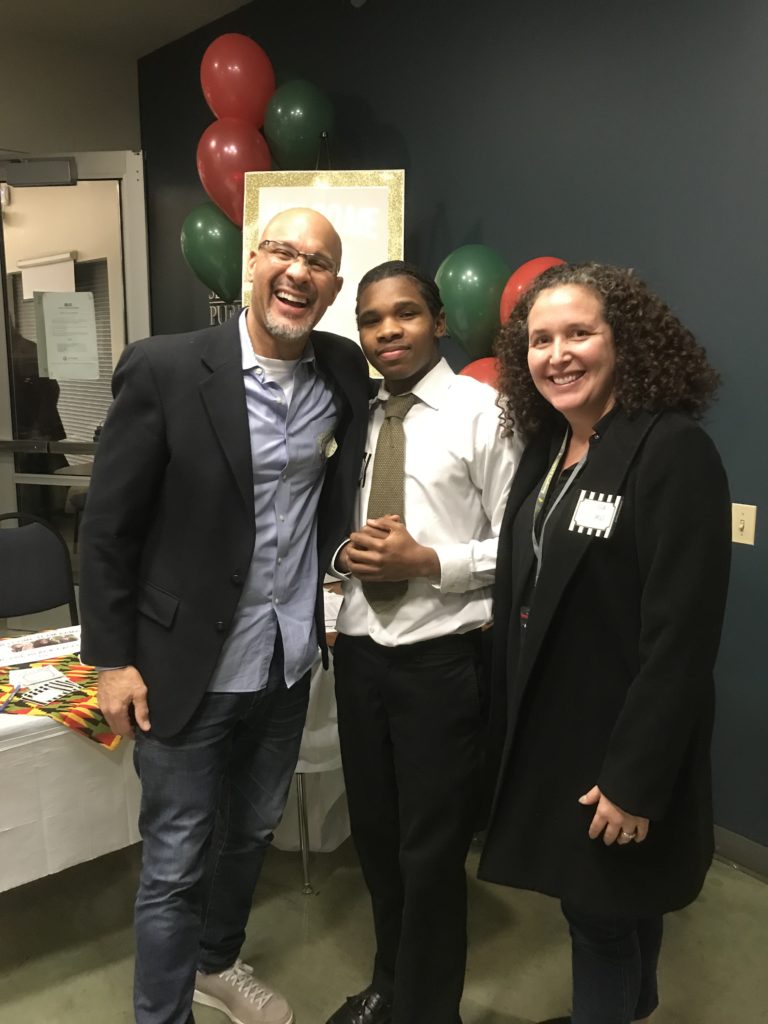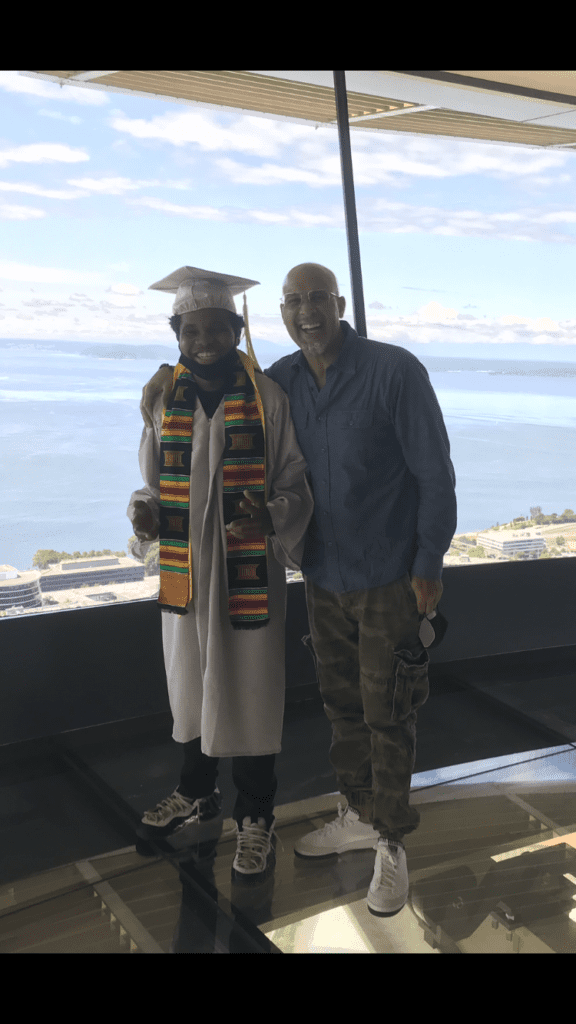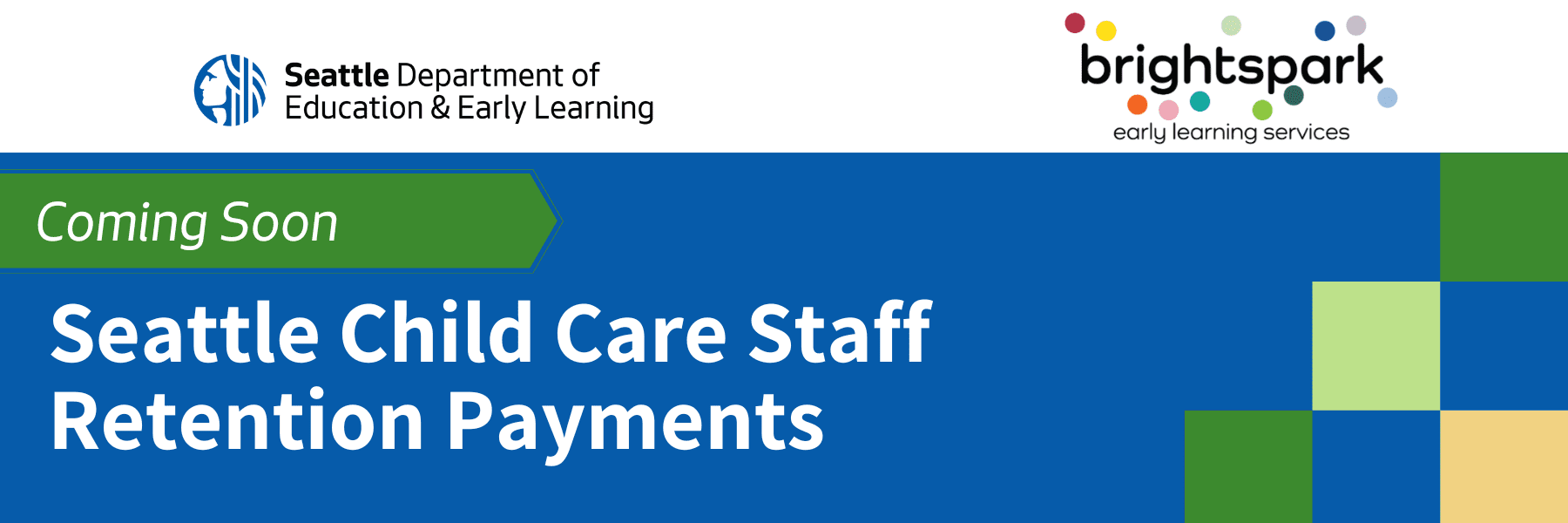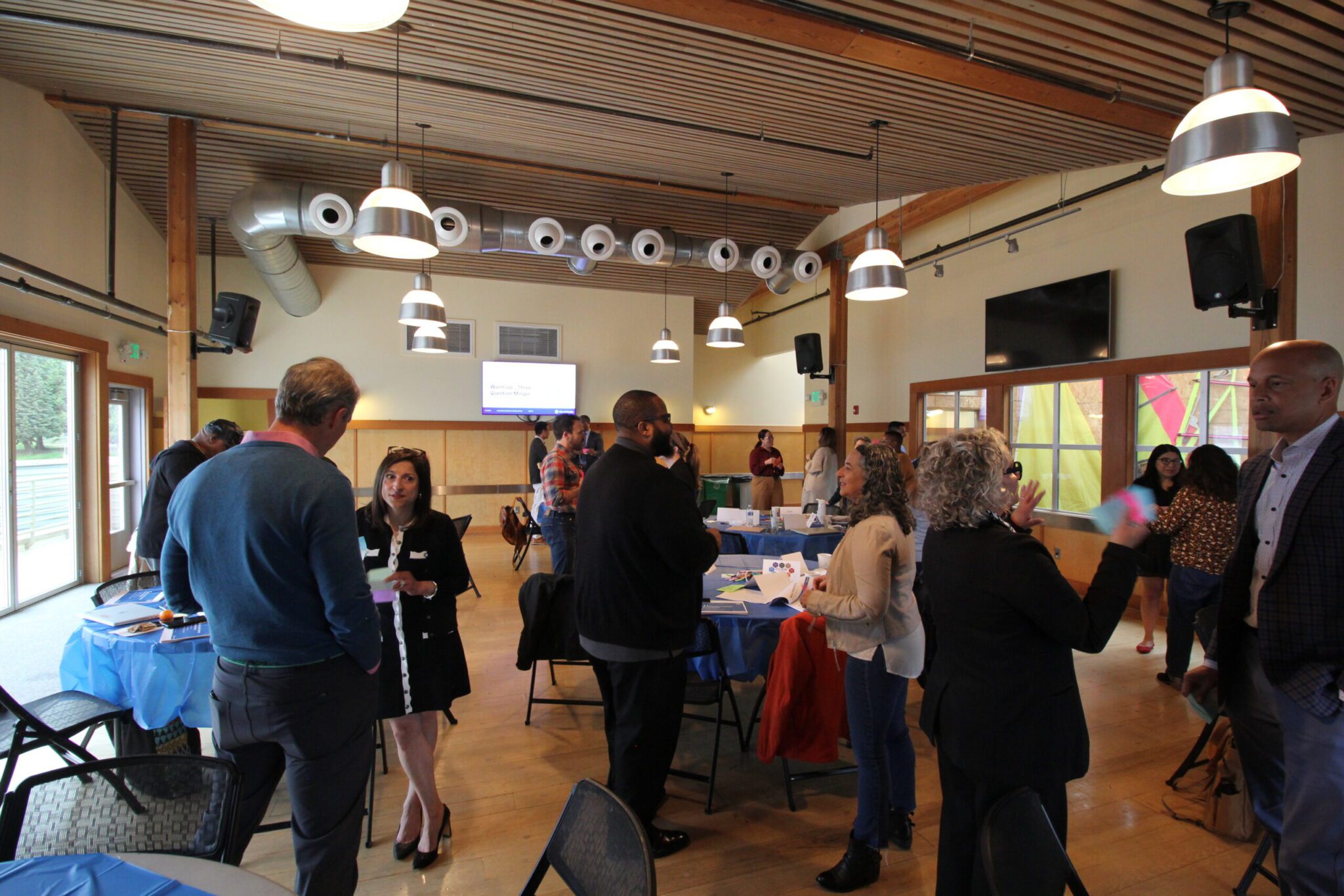Interagency Academy’s graduation ceremony, held the evening of Juneteenth—a holiday celebrating the ending of slavery in the United States—was a tribute to heritage, tradition, and hope over struggle, and it included an air of royalty.
DeMarcus Belle was one of the proud “Kings” who graduated Friday, June 19, as part of the 2020 Interagency graduating class. These young men were part of the Kingmakers of Seattle program, first launched in 2017 at four pilot schools within Seattle Public Schools—one high school (Interagency) and three middle schools (Aki Kurose, Asa Mercer, and Denny International). The program is implemented in partnership with the SPS Department of African American Male Achievement (founded 2019) to intentionally focus on improved outcomes for Black male students. It is currently funded under the Families, Education, Preschool, and Promise (FEPP) levy.
Modeled after the Oakland Unified School District’s Office of African American Male Achievement (AAMA) program, Kingmakers is an elective class specifically designed for Black male students (called Kings) taught by Black male educators (called facilitators). Classes follow the Khepera curriculum—a culturally relevant African-centered curriculum that is both engaging and academically rigorous. The curriculum emphasizes Black history, cultural knowledge, positive self-identity, literacy, and academic mentoring.
Continue reading below > > >
Cheering on DeMarcus at Interagency Academy’s socially-distanced graduation ceremony was Emery Walters, Interagency’s Kingmakers facilitator, known by all his students as “Mr. Emery.” Walters spent the last two years as DeMarcus’s teacher and Family Student Advocate, watching the young man develop academically and personally in his proud identity and achieve successes DeMarcus didn’t think possible when he first joined the program in 2018.
“My journey in high school started off—I wouldn’t necessarily say rough—but it was kind of off to a bad start just because of the decisions I was making.” DeMarcus said some of his teachers at Franklin High School, where he spent his freshman and sophomore years “just didn’t understand me from my side, like my stories. And I didn’t understand them just because, you know, I don’t really know them as well. So, it was kind of like, we were just distant.”
Things changed for DeMarcus when he made the switch to Interagency and met Walters. Interagency is an alternative high school in Seattle Public Schools with campuses across the city. “With Mr. Emery being a person of color, I thought, he’s been through this, through the hardship, through the hard times, and through the success. I thought, okay, I can learn off his experience. And so, I started doing that in my day-to-day experience. It was the right decision to do that, and now, I kind of see myself in Mr. Emery, seeing like, what I want to be when I grow up.”
The Value of Black Male Educators
Prior to COVID-19 school closures, Walters and his Kingmakers class at Interagency were meeting four days a week for 50 minutes each class period. Over a two-year period, DeMarcus had spent close to 200 hours with Walters in the classroom, and the impact DeMarcus describes Mr. Emery having on him is a good example of what Kingmakers is all about. Research shows that a Black student having even one Black teacher during their K-12 experience can have a profound effect on keeping them in school. Matching Black boys and teens with Black male educators in the classroom creates healthy, affirming learning environments for young Black students in the public school system.
Walter said, “It’s the neatest thing to watch these young men, when they really do adopt the title of a King—because we have an old saying that whoever controls the story controls the narrative—and we want the narrative to be that our young Black boys don’t have to only be entertainers, hustlers, or you know, movie stars. They can be doctors. They can be scholastic. They can be dentists, they can be lawyers, they can be judges. They can be the president of the United States of America.”
Pulling Out Greatness
The process of taking on the identity of a King takes time. “In the beginning, it’s not organic,” Walters said. “We have some of the young men say, ‘Please don’t call me that; that’s not what my name is.’” Walters said it typically takes 2-3 months before some of them will adopt the term and start to call themselves Kings, but when they do, the way they talk, walk, and even carry themselves starts to change. “I don’t speak to young men’s position, which is temporary. I like to speak to what their purpose is. That’s what’s greater. And sometimes you have to pull that greatness out of them because they’ve been so inundated by what the system has made them believe they are, which is so incongruent to what they really are.”

Interagency’s graduation, like all of SPS’s high school graduations this year, was streamed online for friends, family, and the public. DEEL’s Director Dwane Chappelle, a former principal at Rainier Beach High School, watched from home, cheering on DeMarcus and the other Kings and Interagency graduates. “As a Black man, a father, and a former high school principal, I’m filled with pride at what I see these young men achieving,” said Chappelle. “DEEL is proud to partner with Seattle Public Schools in offering the Kingmakers program and bringing changes to the education system that demonstrate a commitment to Black male excellence.”
Walters broke down some of the differences between the Kingmakers experience and other classroom experiences for a lot of young Black males: “We have data that shows that Black boys are typically suspended at a higher rate. When they have issues, in terms of sitting still in classrooms, they’re deemed as being problematic. In the Kingmakers program, we shift that whole narrative on how these young African American men see themselves. Again, it takes some time. We have a saying in Kingmakers. We say, ‘When we lead with love, we love you enough not to let you fail,’ whereas the traditional comprehensive academic setting for our young Black boys is almost like it’s set up to help them fail. They don’t really give them the tools that they need. So, at Kingmakers, we do three things on a consistent basis: we engage, we encourage, and we empower.”
Brothers in Unity
When asked about his favorite part of being in Kingmakers, DeMarcus said, “My favorite thing is the start of it where we do the Man-Up Pledge, because we get all of our brothers together in unity and just say it out loud. We’ll have others come into the classroom to look at us as we’re doing the chant, and they just look at us in awe—it’s empowering because they get to hear us—our voice that many don’t usually hear.”
During COVID, Kingmakers continued to meet online, and the Interagency staff focused on making sure all the Kings had laptops, Wi-Fi, and hotspots to keep engaging in the class. At the end of each class, the Kings would still end their time together with the Man-Up pledge. They also designated Fridays for virtual Community Circles, where they focused on how to continue engaging and serving community during the pandemic.
“I remember the first day I met DeMarcus,” Walters recalled. “When Marcus came in to the program, he kind of had one foot in and one foot out. It was like he was thinking, this all sounds good, but how long are you going to be here? But to watch how much that young man transformed in a two-year period has just been phenomenal.”
During his second year of the program, DeMarcus rose to become a member of SPS’s African American Male Achievement (AAMA) Student Leadership Council at Interagency. “I’m very proud of myself,” DeMarcus said when asked about graduating. “I’ve come a long way. I’ve [lived] where not too many people make it outside of high school—not many graduate. And on top of that, I’ve been in a place where, you know, people don’t see us as equal. I lived in an area where it was mostly white. A lot of them see me and see a criminal. But I see myself as somebody to be proud of.”

Celebrating Kings
In celebration of the Kings’ graduation, Casey Family Programs and DEEL supplied graduating Kingmakers with kente stoles, which Walters says he believes gives them a sense of connection with their ancestors. Kente cloth was a sacred, woven item worn during times of importance by Ghanian royalty and is now commonly used in the design of academic stoles in graduation ceremonies all over the globe.
When asked about his kente stole, DeMarcus said, “To me, it’s empowering. It shows that I’ve made it, and that me as a Black person, I can do it. No obstacle is ever too complicated for me to cross. No border is high enough that I can’t jump over it . . . . It’s all about doing it for you, and showing others, ‘I made it, I did this.’ Nobody can take this away from me—this is me. I am a Black man, I made it, and I am a king.”
~ ~ ~
MAN-UP PLEDGE I stay woke! I am a conscious brother; we are conscious brothers. I expose myself to images of African American people that educate me and motivate me to be my greatest self. I will support and engage in media that exhibits the brilliance of African American people! I am encouraged and empowered to create media that illustrates the richness of my culture! I understand that my culture influences the entire planet. I stay woke! I am much more than what is usually depicted of me. I do not let tell-lie-vision to tell my vision! I do not let film or music define who I am. I define who I am with the support of my brothers and community. And who I am will be beneficial to myself, my family, and the world! I stay woke. We stay woke! I am a conscious brother; we are conscious brothers. Ase
~ ~ ~
DEEL would like to acknowledge the passing of Horace Lorenzo Anderson, 19, a 2020 graduate of Interagency who was killed near the Capitol Hill Occupy Protest on Saturday, June 20, 2020. The following former Interagency students were also given tribute at the school’s graduation ceremony:
In memoriam:
Cuttino Gomaz
William Freitag
Omar Ali
Michael Williams
Dupree Pickett
Shaun Fuhr
James Richardson
Horace Lorenzo Anderson


